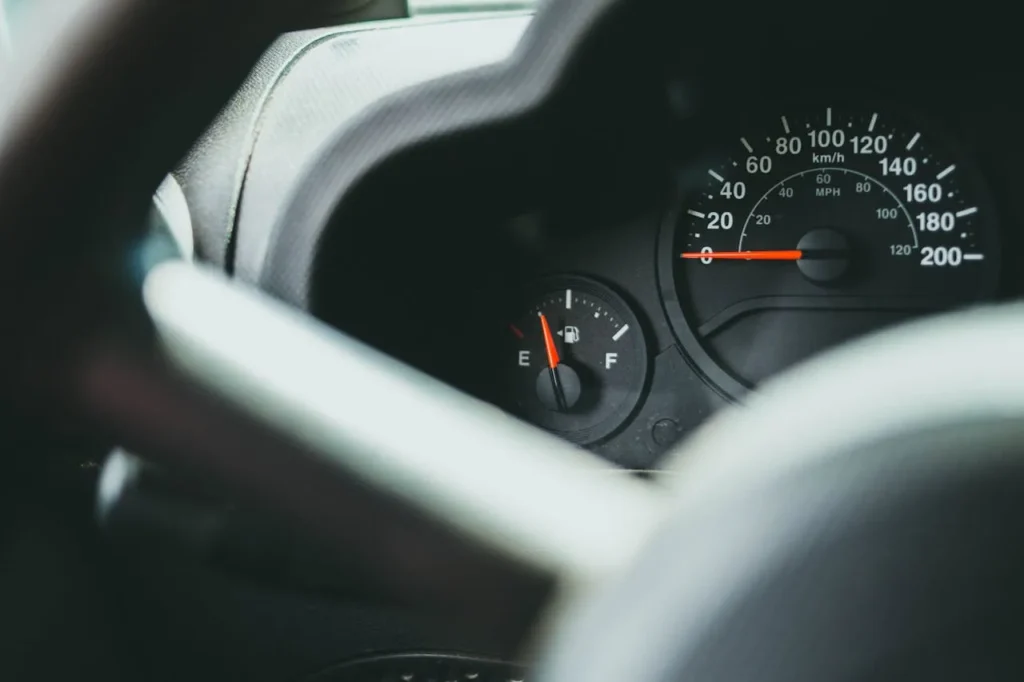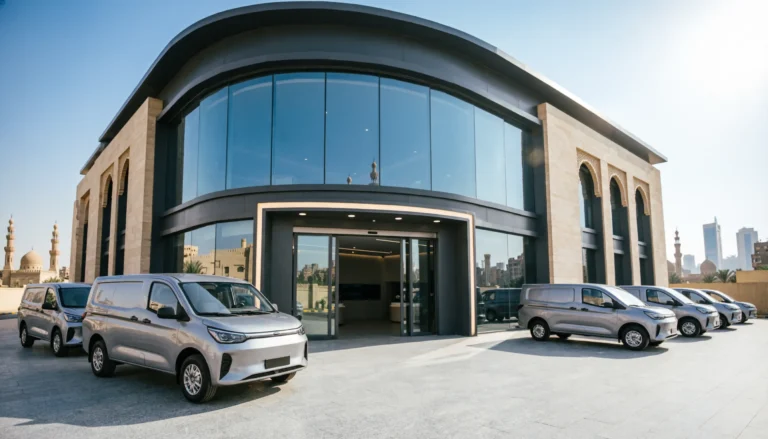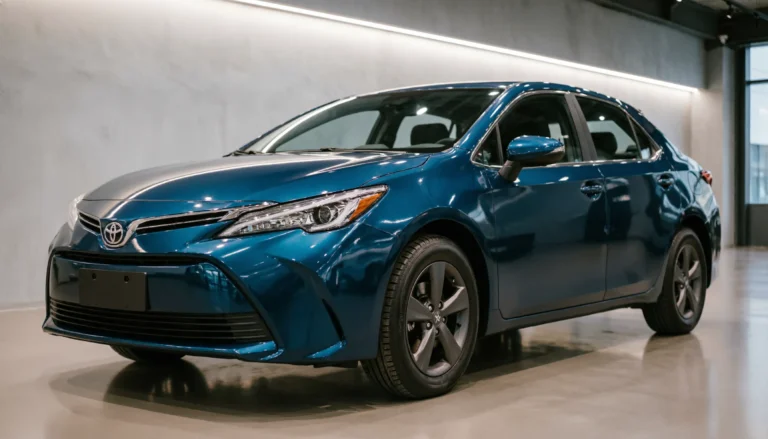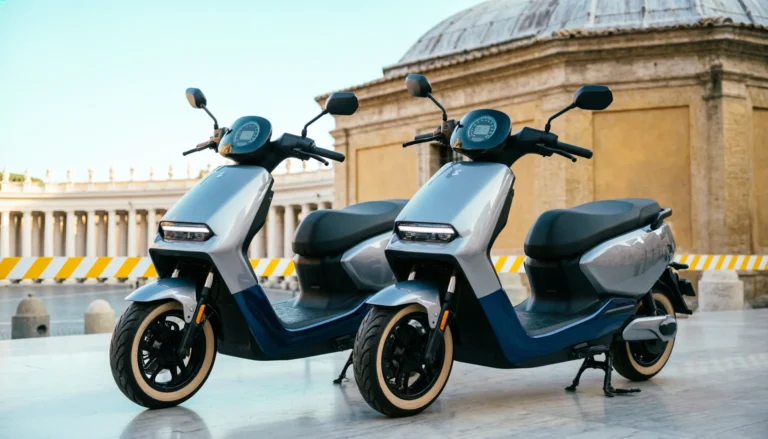
Ampere and Stratus Partner to Develop Cobalt-Free Cathode Technology for Renault Group’s Next-Generation Electric Vehicles
Ampere, the electric vehicle (EV) and software pure player within Renault Group, has taken another significant step in advancing sustainable battery technology by signing a Joint Development Agreement (JDA) with Stratus Materials Inc., a pioneering developer of high-energy, cobalt-free cathode active materials (CAM) for lithium-ion batteries. The collaboration marks a pivotal milestone in Renault Group’s ongoing electrification journey, focused on creating more sustainable, cost-efficient, and high-performance energy storage systems for future vehicles.
A Strategic Collaboration to Accelerate Next-Gen Battery Innovation
The newly signed JDA between Ampere and Stratus Materials is designed to explore and evaluate the integration of Stratus’s proprietary LXMO™ cobalt-free cathode materials into Renault Group’s upcoming EV portfolio. The initiative represents the first formal step toward validating the material’s performance within EV-format battery cells and assessing its scalability for industrial use.
Testing will take place at Ampere’s Battery Cell Innovation Lab in Lardy, France, a state-of-the-art research facility recently inaugurated to accelerate next-generation battery development. The lab serves as a critical hub for Renault Group’s battery R&D strategy—focused on anticipating technological breakthroughs, strengthening in-house capabilities, and maintaining the company’s competitive edge in the evolving global EV landscape.
The Promise of LXMO™: A New Frontier in Battery Chemistry
Stratus Materials’ LXMO™ technology represents an innovative new chemistry in the field of lithium-ion batteries. Unlike conventional cathode materials that rely heavily on cobalt—a metal associated with high cost, supply chain risks, and ethical sourcing challenges—LXMO™ offers a cobalt-free solution without compromising energy performance.
According to Stratus, LXMO™-based batteries can deliver energy densities comparable to or even exceeding those of traditional NMC (Nickel-Manganese-Cobalt) chemistries. At the same time, they maintain cost advantages and abuse tolerance levels similar to those of LFP (Lithium Iron Phosphate) batteries. This unique blend of attributes positions LXMO™ as a potential game-changer for the electric mobility sector, offering automakers like Renault the flexibility to design longer-range, safer, and more affordable EVs.
From a systems perspective, LXMO™ technology enables pack-level energy densities up to twice that of existing NMC- or LFP-based battery packs. Such an improvement could yield significant design efficiencies—allowing lighter battery packs, extended driving ranges, and potentially faster charging capabilities—all while reducing total cost of ownership for customers.
Advancing Ampere’s Multi-Step Battery Strategy
The partnership with Stratus Materials aligns perfectly with Ampere’s three-phase battery roadmap, which focuses on diversifying chemistries to balance performance, affordability, and sustainability:
- Step 1: NMC (Nickel-Manganese-Cobalt) – Used for its high energy density, NMC technology currently powers many of Renault’s electric models, delivering superior range and efficiency.
- Step 2: LFP (Lithium Iron Phosphate) – Set to enter Renault vehicles in 2026, LFP offers a cost-effective and durable chemistry with strong thermal stability, making it ideal for high-volume, mainstream EVs.
- Step 3: Cobalt-Free Technology (LXMO™) – The latest strategic frontier, aimed at eliminating reliance on cobalt, enhancing sustainability, and enabling the next generation of high-performance, low-cost batteries.
With this new collaboration, Ampere is proactively testing materials that could redefine the performance-to-cost ratio of future electric vehicles and accelerate the company’s transition toward a fully sustainable battery ecosystem.
Industry Leaders Speak on the Collaboration
Highlighting the importance of this partnership, Nicolas Racquet, Vice President of Vehicle & Powertrain Engineering at Ampere, emphasized the transformative potential of the technology:
“Ampere is looking closely at high energy cobalt-free materials because of their potential advantages compared to incumbent cathode materials. Stratus’s LXMO™ CAMs have gained Ampere’s attention because of their unique and compelling combination of performance, cost, safety, and cycle life.”
His statement underscores Ampere’s commitment to balancing high performance with environmental responsibility—key factors that will shape the next era of electric mobility.
Jay Whitacre, CEO of Stratus Materials, expressed enthusiasm about partnering with a leading European automotive group:
We are thrilled to have LXMO™ selected by Ampere and Renault Group as a candidate for deployment into their future vehicle portfolio. Our progress to date with Ampere has been strong, and we look forward to delivering on the ongoing JDA and moving together toward full vehicle deployments.”
Whitacre’s remarks highlight Stratus’s confidence in LXMO™’s readiness for real-world applications and the company’s shared ambition to accelerate large-scale adoption of cobalt-free battery technologies.
Reducing Supply Chain Risk and Environmental Impact

The move toward cobalt-free chemistry also addresses a critical challenge in today’s global battery supply chain. Cobalt, while effective in boosting energy density and stability, is among the most expensive and ethically sensitive materials in battery production. Most of the world’s cobalt supply is concentrated in the Democratic Republic of Congo, raising both geopolitical and sustainability concerns.
By developing a high-performance alternative that eliminates cobalt dependence, Ampere and Stratus aim to enhance supply chain resilience, reduce environmental impact, and strengthen long-term cost predictability. This aligns with Renault Group’s broader decarbonization goals and its commitment to building a circular, low-carbon EV ecosystem in Europe.
Moreover, the development of LXMO™ batteries supports the European Union’s growing emphasis on strategic battery independence, helping reduce reliance on critical raw materials sourced outside Europe while fostering domestic innovation and manufacturing.
Strengthening Renault Group’s EV Competitiveness
As the automotive industry transitions rapidly toward electrification, battery performance and sustainability have become key differentiators among global OEMs. Ampere’s initiative to test and potentially integrate cobalt-free batteries reflects Renault Group’s long-term strategy to lead the European EV market through innovation and vertical integration.
By exploring advanced chemistries like LXMO™, Ampere is not just pursuing better batteries—it’s building a foundation for technological sovereignty. The company’s Lardy facility will play a central role in this mission by providing a controlled environment to assess cell performance, safety metrics, energy output, and life-cycle characteristics of the new materials.
If successful, this partnership could enable Renault Group to deploy vehicles with extended range, improved safety, and reduced battery costs, further democratizing access to electric mobility.
A Step Toward the Future of Sustainable Mobility
Ampere’s collaboration with Stratus Materials marks more than just a technological milestone—it signals a broader shift toward responsible innovation in the EV sector. The integration of cobalt-free chemistry into mainstream vehicle programs represents a key step in building batteries that are not only high-performing but also ethically and environmentally sustainable.
By continuing to diversify its energy storage technologies, Ampere is preparing for a future where battery performance, cost, and sustainability can coexist harmoniously. This reflects the broader vision of Renault Group—to create electric vehicles that are accessible, efficient, and aligned with global sustainability goals.
The Joint Development Agreement between Ampere and Stratus Materials underscores a shared vision to redefine the future of electric vehicle batteries. As the automotive world accelerates toward full electrification, innovations like LXMO™ cobalt-free technology could play a pivotal role in making EVs safer, more affordable, and more sustainable.
With rigorous testing underway at Ampere’s Battery Cell Innovation Lab and a clear roadmap toward commercialization, Renault Group continues to strengthen its position as a pioneer in electric mobility. The collaboration represents not only an advancement in technology but also a strategic move toward achieving a cleaner, smarter, and more resilient automotive future—one where innovation drives sustainability at every level of the value chain.
Source Link: https://www.businesswire.com/







